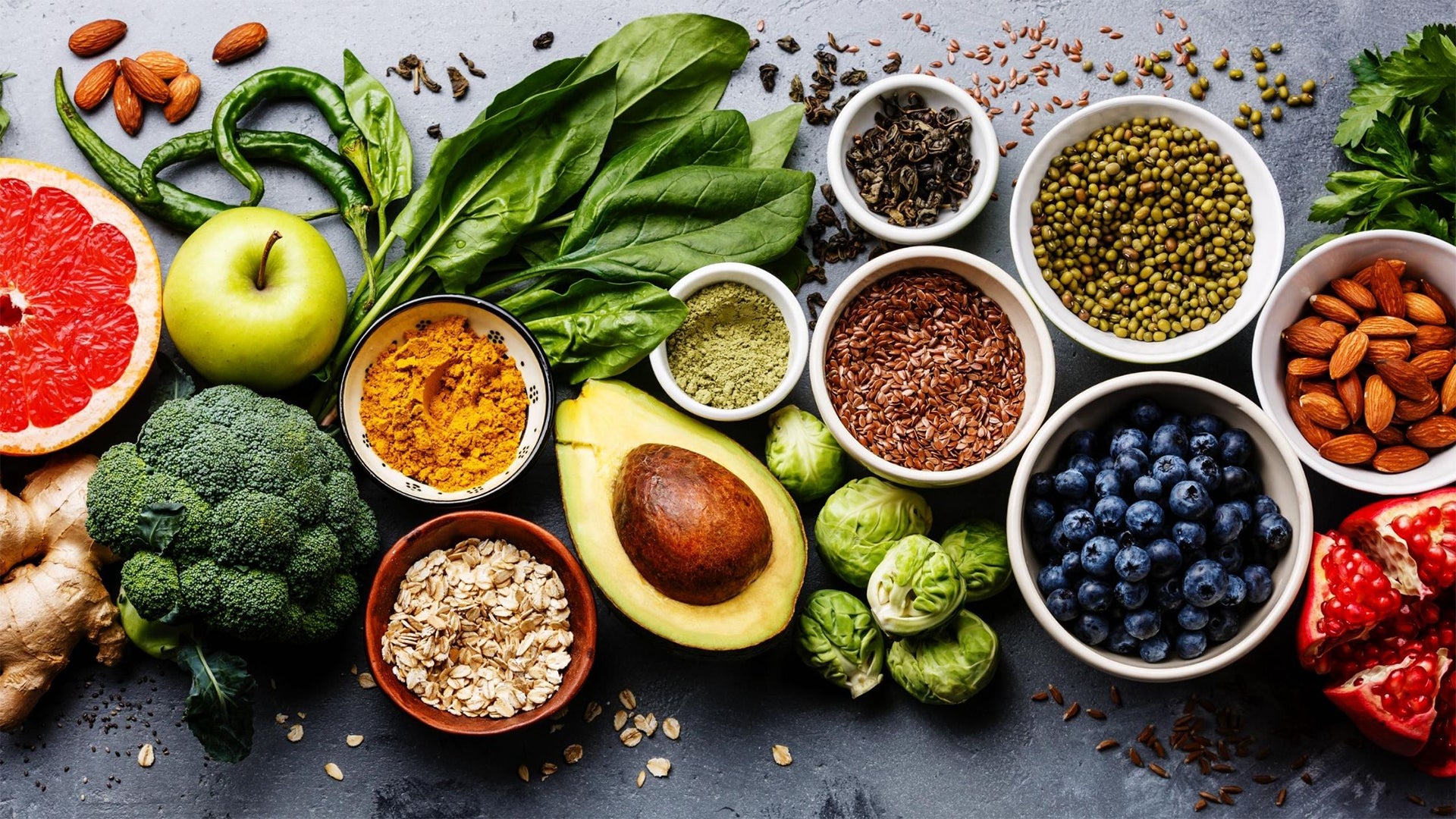
Food Allergies And Skincare: Everything You Need To Know
Skincare can be full of potential allergens, but fragrance, dyes and preservatives aren’t the only culprits. Turns out, plant and food allergies can also be triggered by related ingredients in your beauty products. The answer? Knowledge. Knowledge about your allergies and even more knowledge about what goes in every single one of your skincare formulations. Ready to take that on? Good, then let’s do this.
Anyone with sensitive skin appreciates how hard it is to find beauty products that don’t exacerbate redness, itching, irritation, break-outs or a combination of all the above. Even those of you with relatively normal skin have been there at some point, right? Applied that new ‘miracle’ cream only to discover that your skin is very much against something lurking in its ingredients list?
People with more serious skin conditions such as eczema, psoriasis or rosacea also know that diet is just as important (sometimes even more so) as what is applied to your skin. Anything from peanuts and tree nuts (think almonds, walnuts and macadamias), through to dairy and yeast can all cause unwanted flare-ups.
But the relationship between food, allergies and the skin doesn’t stop there. The truth is, if you have an allergy to a certain type of food, it may be mindful to not only avoid eating it, but to stay well away from it in your beauty products.
To understand more, let’s go back to basics for a minute…
What Is An Allergy?
According to the AAFA (Asthma and Allergy Foundation of America), more than 50 million Americans experience some kind of allergy each year and they can affect any person, at any age.
Allergies are caused by the immune system reacting to a foreign substance it doesn’t like. This foreign substance can be a certain pollen in the air, something you’ve eaten or even a particular metal, rubber or chemical you’ve touched. While this substance may be totally harmless to most people, if it creates a negative reaction in your body, it’s known as an allergen. Your immune system attacks allergens by releasing chemicals into the body called histamines which result in various symptoms from a mild skin rash through to more serious conditions like breathing difficulties and in severe cases, even death.
Testing, Testing, 1, 2, 3
“Regarding possible allergens in cosmetics, the best way to prevent an allergic reaction is to know what you are sensitive to and how to avoid it,” recommends the FDA (US Food And Drug Administration). Sounds simple enough, right? Well, yes, it is – as long as you’re smart and get the professionals to do it for you, of course. Self-diagnosing allergies can be semi-successful, but it requires a process of elimination and that can take time and patience. So, your best bet is to get someone else to do the hard work for you.
Allergies to skincare ingredients like parabens, fragrance and formaldehyde are usually diagnosed through patch tests, but the most common way to diagnose a food or plant allergy, is with a skin test at the doctor’s office.
During a skin test, your doctor can test many different foodstuffs at the same time by placing small drops of liquid food extracts on the skin. Your skin is gently pricked or scratched to allow these potential allergens to penetrate the top layers, then you wait for a reaction – or not.
“Within 15 to 20 minutes, a raised bump with redness around it, similar to a mosquito bite, may appear. This test shows that you are sensitized to the food and are probably allergic to it,” explain experts at the ACAAI (American College of Asthma, Allergy and Immunology).
While you could be allergic to almost any food or plant, some of the most common allergens include:
- Milk and dairy products
- Eggs
- Fish
- Shellfish
- Peanuts
- Tree nuts
- Wheat
- Soybeans
- Grasses
- Ragweed
- Sagebrush
- Nettle
Not sure who to turn to for help with your allergy diagnoses? No problem. The ACAAI can you help you find a board-certified allergist in your local area through its quick online search tool – check it out here.
Know Your Skincare – Inside Out
Once any food or plant allergies have been diagnosed, you can then work to eliminate the offending irritants from your diet. You may also need to avoid certain indoor houseplants and/or start taking allergy medications before and during pollen season.
But what about your beauty routine? Well, here is where things can get a tad tricky.
First, it’s important to know your level of sensitivity and whether you have an actual allergy to something… or are simply intolerant.
To remind you, an allergy is when your body’s immune system attacks a foreign substance in your body, affecting any number of organs and resulting in various levels of severity. A food intolerance, on the other hand, usually only affects the digestive system, and in these cases, applying such food ingredients topically should cause you no harm. For example, it makes sense that if you’re severely allergic to milk, you should strictly avoid beauty products that contain milk in its various forms. But if you have a minor milk sensitivity or are lactose intolerant, you should be fine with topical, milk-based beauty products. That being said, we would always recommend seeing a skin specialist or allergist if you’re concerned.
If you do have a food or plant allergy, your next step is to know what’s inside your beauty products. The bad news is that unlike food companies, beauty manufacturers are not required by the FDA to highlight potential allergens on their labels. This is why reading the list of ingredients before buying or trying any new cosmetic product is imperative. As we said before, knowledge is key. And we’re not simply talking about looking for the word ‘corn’ if you have a corn allergy, because many byproducts of corn such as glycerin and starch are commonly found in cosmetics. The trick is to make sure you know your allergen inside out, including all of its potential byproducts, as well as their chemical and common names. Then you can be sure to avoid them hook, line and sinker. Granted, this is no mean feat, but it’s worth it for the sake of your skin – and your sanity ;)
Another important note: certain food and plants have similarities in their organic makeup. For example, if you’re allergic to ragweed, you may need to be wary of related ingredients like sage, dandelion and sunflowers in your skincare. Similarly if you can’t eat a certain berry, you might find you need to avoid all berries in your beauty products.
Again, this is not easy to figure out by yourself, so if you have a reaction to something and you're not sure why, stop using it immediately and seek advice from your allergist or skin expert.
Better safe than sorry, right?








